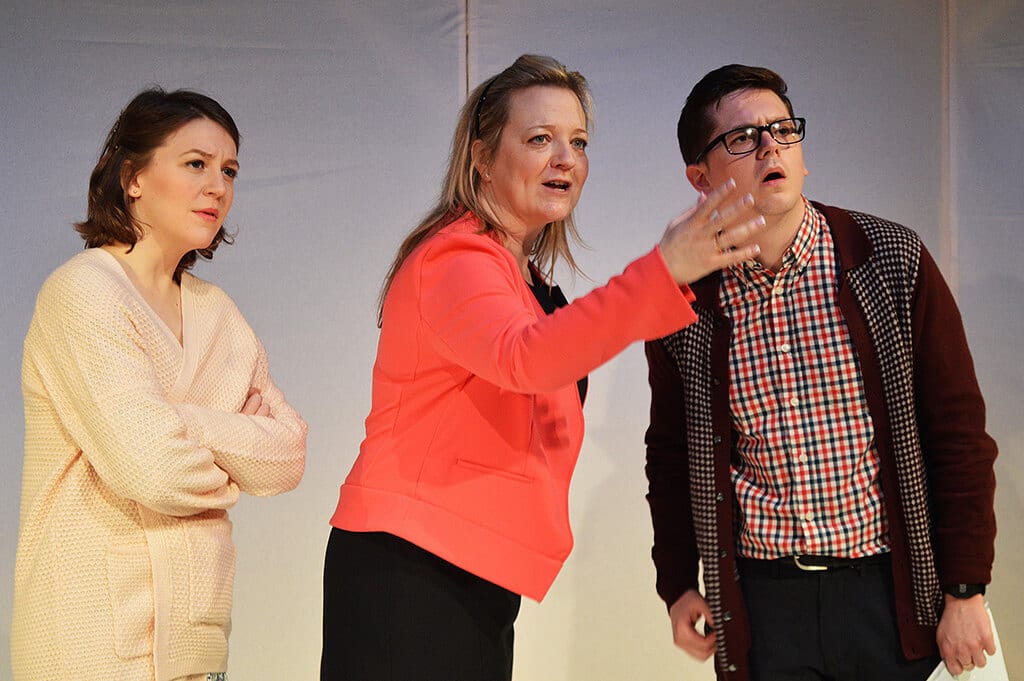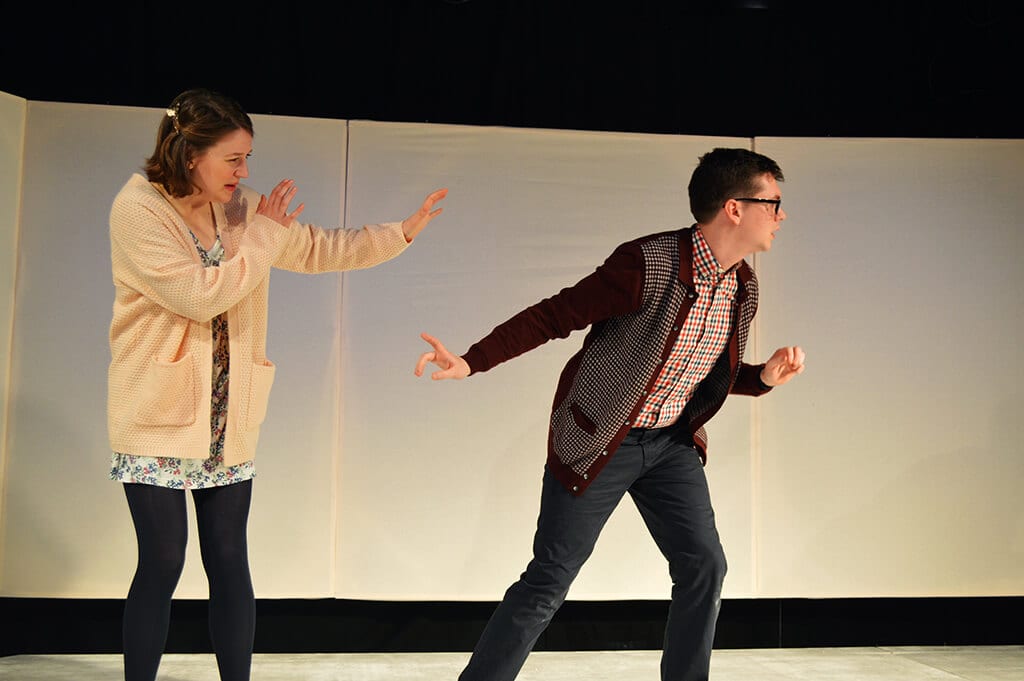Rushing onto stage and hushing the pre-show music, our main characters, Gill (Gemma Whelan) and Ollie (Sean Verey) announce that the play will begin by telling us, ‘We’re ready to start, now’.
From the very beginning of this play, the audience in Radiant Vermin is cast as the confidantes of this couple, witnessing the retelling of the sordid deeds which lead to them achieving their dream home. The Brewery Theatre is small and intimate, and the audience loom above a featureless, monochrome stage. The immediacy of this space, and the actors’ skill in magically rendering it a house, a road, a hilltop, urgently involves us in a story which at first appears pedestrian: a young couple’s rise up the property ladder.
We soon discover that this isn’t a conventional confession about the housing crisis. Gill and Ollie are young prospective parents, delighted to be offered a house, unrenovated but palatial, for free. This offer comes from the sparkling, mysteriously omniscient Miss D., played by Amanda Daniels with delicious relish. The audience, and the couple, understandably question whether this deal is too good to be true, and before long, they discover that the cost of renovation is human life. Startled by a homeless man one night, they accidentally kill him, only to discover that he dissolves in a flood of fairy lights into the newest designer kitchen from Harrods.
This unusual premise works for most of the play, in that it keeps the audience curious, if baffled. We want to know why, and how, these bizarre events are happening. The writing is the most skilful in the moments when the characters acknowledge quite how far the audience is required to suspend its disbelief. The surreality works.
However, at the same time, writer Philip Ridley seems to be trying to aim beyond mere surreality by posing the central dilemma at the core of the play. The question as to whether the couple should prioritise human life or the acquisition of an ornate hall mirror, while amusing in its flippancy, is also one-sided and falls a little flat.
At times, though, the writing is superb. Ridley is particularly excellent at creating comic dissonance; he describes fruit, for example, as being like ‘baby’s eyeballs’. Whelan and Verey exhibit their outstanding skill as actors in a final party scene in which they impersonate all of the guests simultaneously, producing an impressive array of accents.
It is in moments such as these, when the characters become aware of the absurdity of their own story, and turn to the audience as if to roll their eyes at the strangeness of their performance, that the play truly comes alive and proves itself an interesting piece of modern theatre.



